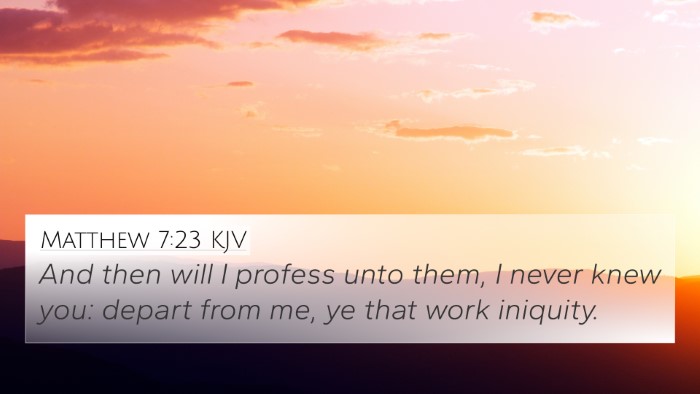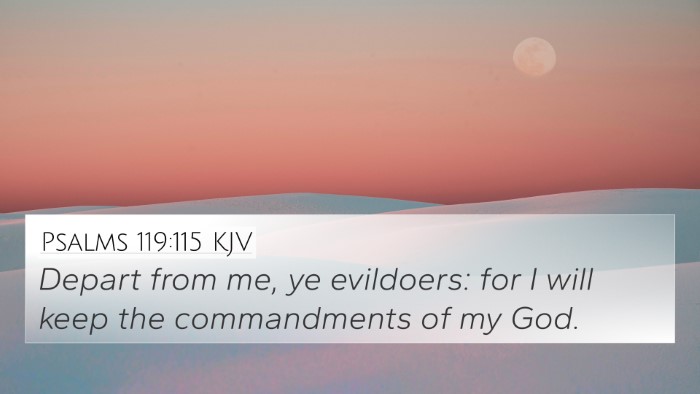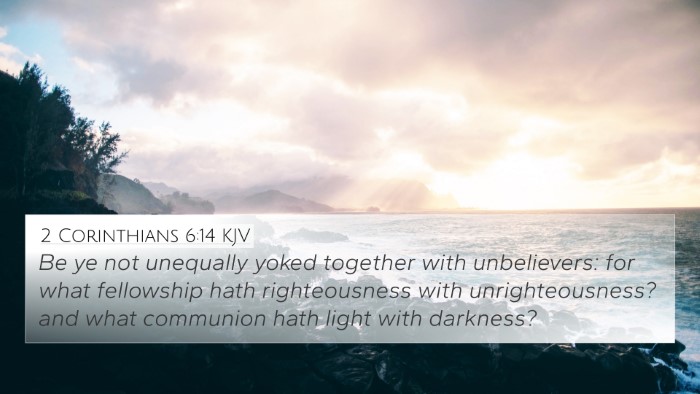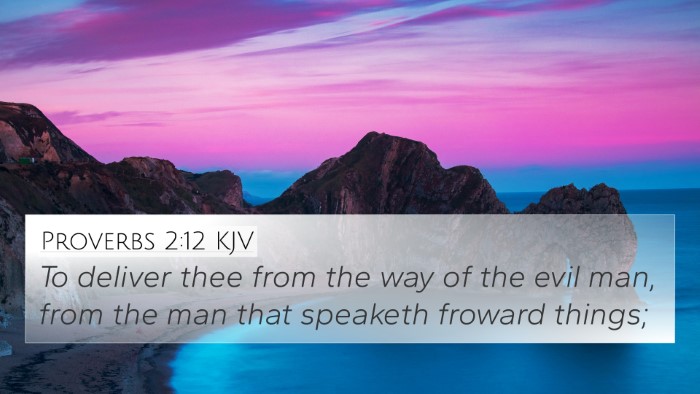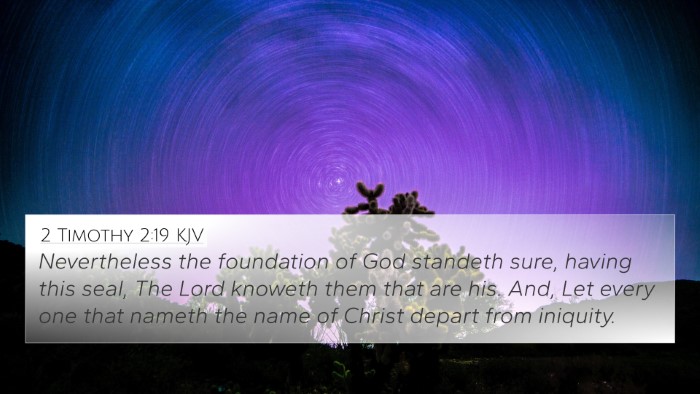Understanding Psalms 101:4
Psalms 101:4 states: "A perverse heart shall depart from me: I will not know a wicked person." This verse reflects a profound statement about morality and the pursuit of righteousness, emphasizing the need to distance oneself from wickedness.
Summary of the Verse
This verse indicates a clear stance against the presence of evil and moral corruption. The psalmist expresses a desire to eradicate wickedness from his life, portraying a heart devoted to integrity and godliness. The mention of a "perverse heart" highlights the internal moral compass that guides one's actions and associations. The verse encapsulates the theme of personal holiness and discernment in choosing companions and influences.
Commentary Insights
Insights from public domain commentaries provide deeper understanding:
-
Matthew Henry:
Henry emphasizes the necessity of personal purity and the rejection of wickedness. He posits that a “perverse heart” signifies a mind characterized by deviousness and insincerity. The psalmist’s commitment to distancing himself from such influences reflects a pursuit of a holy life.
-
Albert Barnes:
Barnes notes the importance of being discerning about the company one keeps. He suggests that knowing a wicked person implies endorsing or accepting their behaviors. The psalmist showcases a proactive approach to holiness by declaring his refusal to engage with immoral individuals.
-
Adam Clarke:
Clarke expands on the theme of separation from sin, correlating it with spiritual integrity. He asserts that to ‘know’ someone also implies familiarity and acceptance, thus reinforcing the importance of choosing companions wisely to align with righteous values.
Bible Verse Cross-References
This verse connects with several other scriptures that underscore similar themes of purity and righteousness:
- Proverbs 4:23: "Keep thy heart with all diligence; for out of it are the issues of life."
- Psalm 119:115: "Depart from me, ye evildoers: for I will keep the commandments of my God."
- 1 Corinthians 15:33: "Be not deceived: evil communications corrupt good manners."
- 2 Corinthians 6:14: "Be ye not unequally yoked together with unbelievers: for what fellowship hath righteousness with unrighteousness?"
- Proverbs 13:20: "He that walketh with wise men shall be wise: but a companion of fools shall be destroyed."
- Psalm 26:4-5: "I have not sat with vain persons, neither will I go in with dissemblers. I have hated the congregation of evil doers; and will not sit with the wicked."
- James 4:8: "Draw nigh to God, and he will draw nigh to you. Cleanse your hands, ye sinners; and purify your hearts, ye double minded."
Thematic Connections
Several themes emerge from Psalms 101:4 and its cross-references:
-
The Pursuit of Righteousness:
Both Psalms and Proverbs repeatedly encourage believers to seek holiness and distance themselves from immoral influences.
-
The Importance of Companionship:
Biblical texts often highlight the impact of associations on one’s spiritual journey, as seen in 1 Corinthians and Proverbs.
-
Heart and Intentions:
The emphasis on the heart's condition, as noted in Proverbs and James, underscores the significance of internal purity leading to external actions.
Application for Today
The teachings of Psalms 101:4 remain relevant today. Believers are encouraged to evaluate their relationships and influences, ensuring they align with their commitment to spiritual integrity. This verse acts as a guide for personal reflection, urging individuals to uphold holiness in thought, word, and deed.
Conclusion
In conclusion, Psalms 101:4 presents a powerful call to sanctity and discernment. Its implications resonate through the pages of Scripture, providing a framework for understanding the weight of our choices in relation to godliness. This verse, along with its connections to other biblical texts, deepens our appreciation of the significance of living a life devoted to righteousness.




